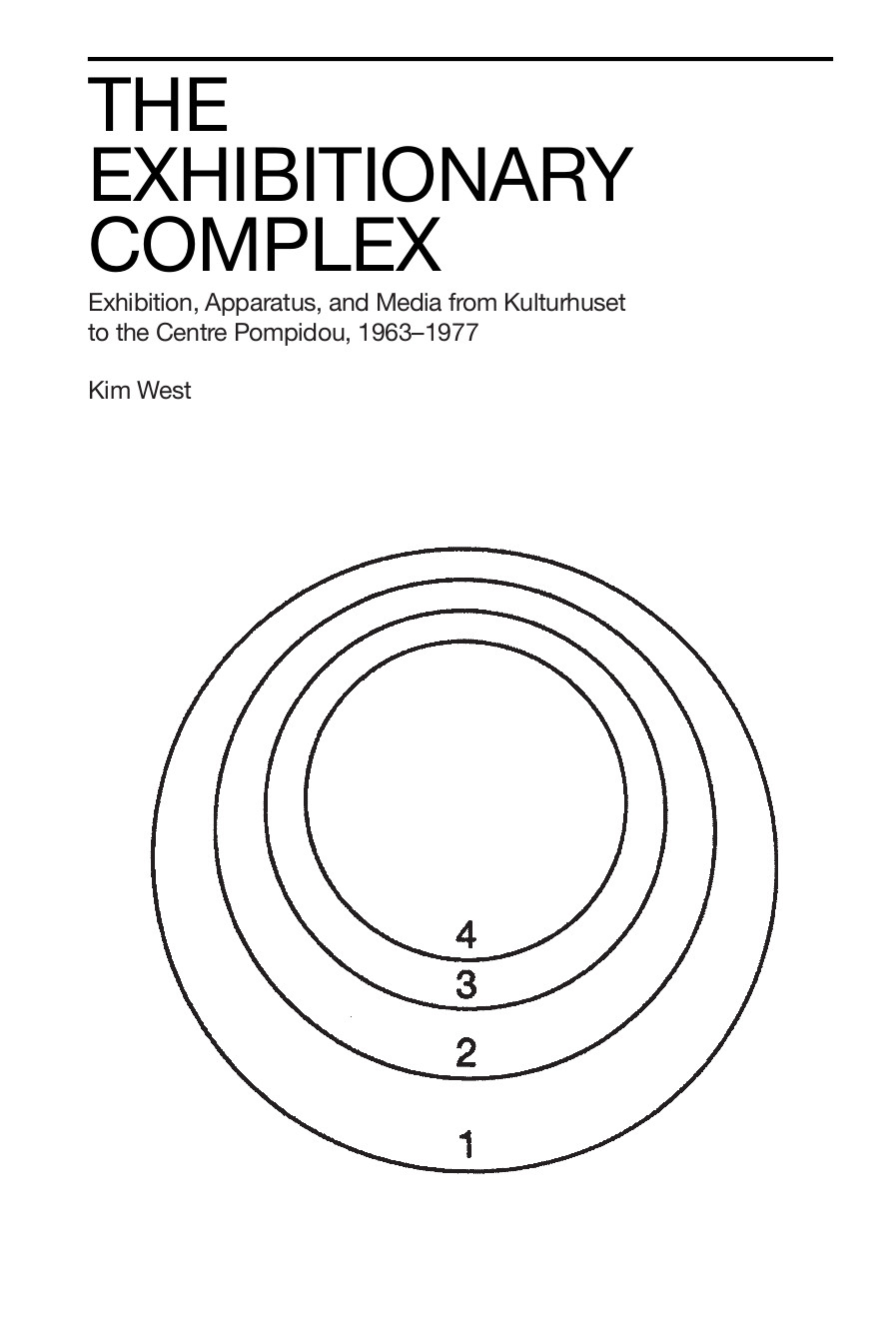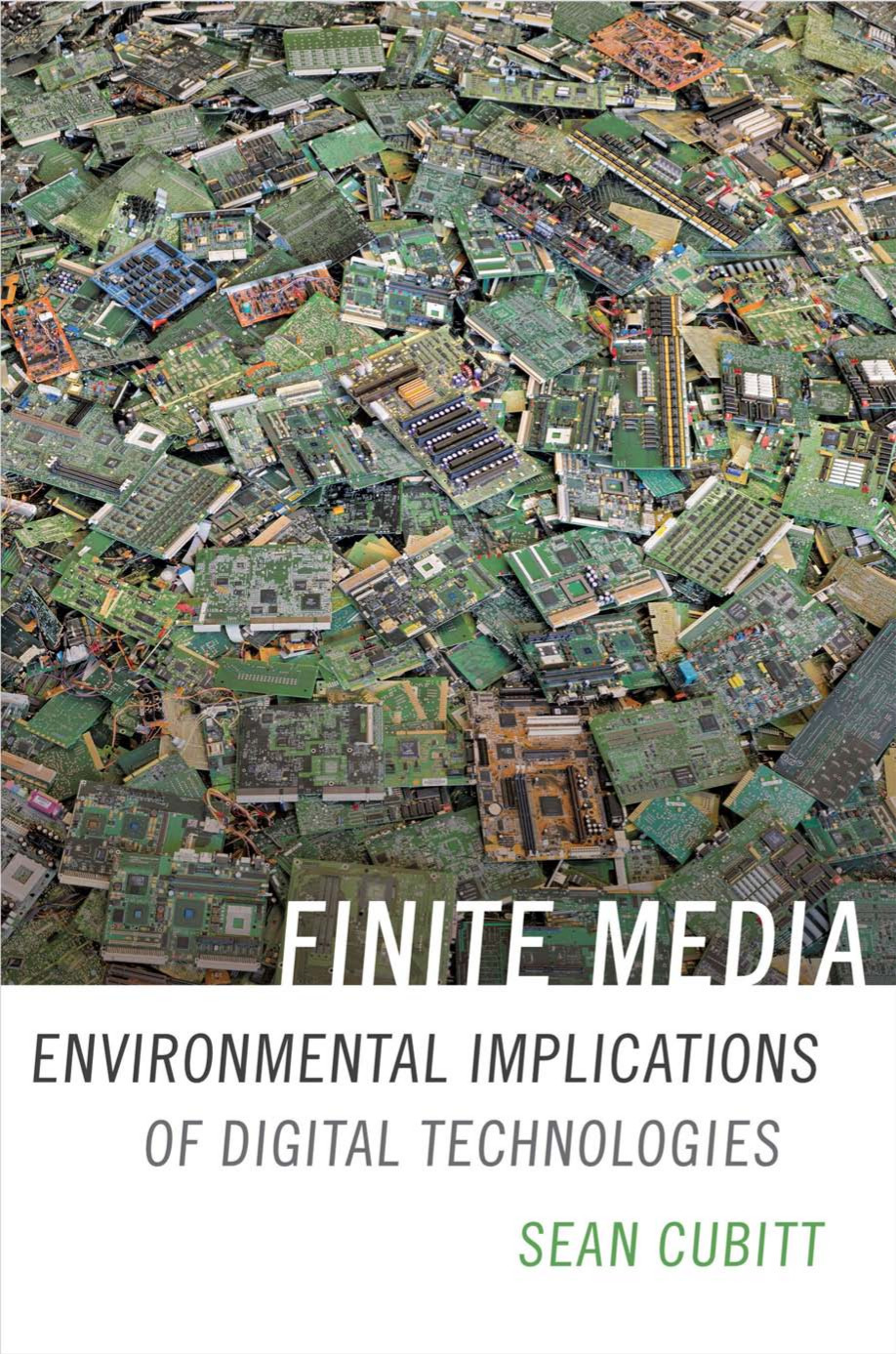Kim West: The Exhibitionary Complex: Exhibition, Apparatus and Media from Kulturhuset to the Centre Pompidou, 1963-1977 (2017)
Filed under thesis | Tags: · aesthetics, apparatus, art history, exhibition, information, media, museum, networks, theory

This doctoral thesis “studies the new Information Center model of the art museum that was developed by a group of artists, curators, architects, and activists connected to Moderna Museet in Stockholm between the mid-1960s and the mid-1970s. Through close readings of Moderna Museet’s unrealized Kulturhuset project, and a series of related attempts at rethinking the exhibition and the museum in relation to new information technologies, systems, and networks, it traces the origins, the critical implications, and the effects of this model, according to which the museum should function at once as a catalyst for the active forces in society, a vast experimental laboratory, and a broadcasting station.
In this study, the museum is understood as an exhibitionary apparatus, the specific characteristics of which are configured in relation to other apparatuses for display, distribution, and interaction, which together form an exhibitionary complex, caught in a process of gradual integration with the expanding network of cybernetic media. The study asks under what conditions the exhibitionary apparatus might preserve its particular modes of social and aesthetic experience, while acting as a transformative force on and through the new information environments.”
PhD dissertation in Aesthetics, School of Culture and Education, Södertörn University
Publisher Södertörn University, Stockholm, 2017
Open access
ISBN 9789187843761
359 pages
Review: Anders Kreuger (Kunstkritikk, 2017).
Comment (0)Baylee Brits, Prudence Gibson, Amy Ireland (eds.): Aesthetics After Finitude (2016)
Filed under book | Tags: · aesthetics, anthropocene, fiction, human, immanence, noise, philosophy, sound, subject, theory

“Traditionally aesthetics has been associated with phenomenal experience, human apprehension and an appreciation of beauty—the domains in which human cognition is rendered finite. What is an aesthetics that might occur ‘after finitude’?”
Contributions by Marc Couroux, Prudence Gibson, Thomas Sutherland, Lendl Barcelos, Douglas Kahn, Adam Hulbert, Baylee Brits, Stephen Muecke, Laura Lotti, Christian R. Gelder, Simon O’Sullivan, Tessa Laird, Chris Shambaugh (and Maudlin Cortex), Chaim Horowitz, and Amy Ireland.
Afterword by Justin Clemens
Publisher re.press, Melbourne, Dec 2016
Anamnesis series
Creative Commons BY-NC-ND License 2.5
ISBN 9780980819793, 0980819792
241 pages
Conference (2015)
Publisher
WorldCat
Sean Cubitt: Finite Media: Environmental Implications of Digital Technologies (2016)
Filed under book | Tags: · aesthetics, ecology, energy, environment, matter, media, politics, technology

“While digital media give us the ability to communicate with and know the world, their use comes at the expense of an immense ecological footprint and environmental degradation. In Finite Media Sean Cubitt offers a large-scale rethinking of theories of mediation by examining the environmental and human toll exacted by mining and the manufacture, use, and disposal of millions of phones, computers, and other devices. The way out is through an eco-political media aesthetics, in which people use media to shift their relationship to the environment and where public goods and spaces are available to all. Cubitt demonstrates this through case studies ranging from the 1906 film The Story of the Kelly Gang to an image of Saturn taken during NASA’s Cassini-Huygens mission, suggesting that affective responses to images may generate a populist environmental politics that demands better ways of living and being. Only by reorienting our use of media, Cubitt contends, can we overcome the failures of political elites and the ravages of capital.”
Publisher Duke University Press, 2016
Cultural Politics Books series
ISBN 9780822362920. 0822362929
256 pages
via wX
PDF (updated on 2021-1-29)
Comment (0)
